We work with insurances. Verify yours now
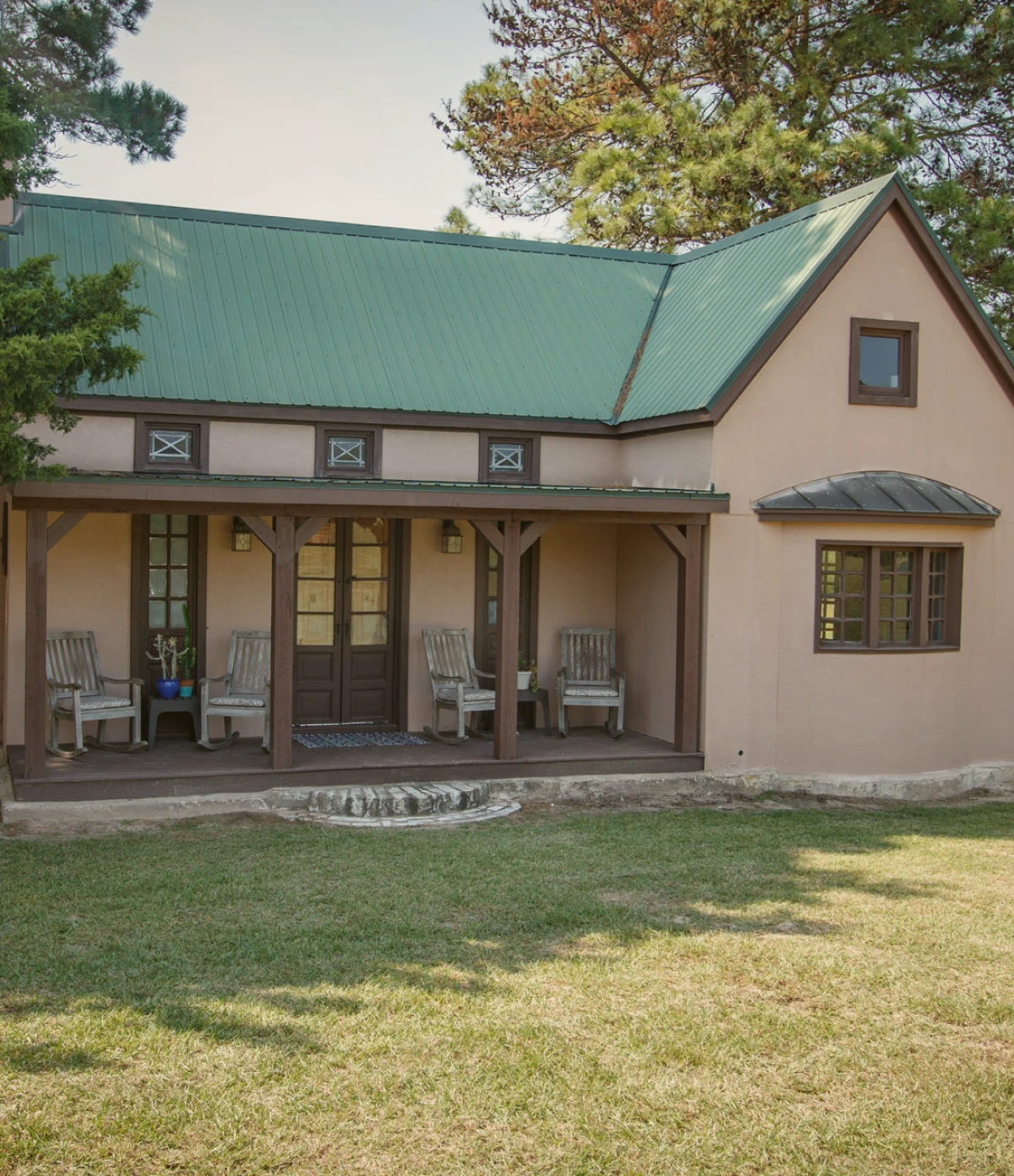
Sober living homes provide a crucial bridge between inpatient care and independent living for those in recovery treatment programs from substance use disorders. These residential facilities offer a structured, substance-free environment where residents can solidify their sobriety skills while gradually reintegrating into daily life.[1]
In sober living homes, residents typically share living spaces and responsibilities, creating a community of mutual support and accountability.[2] While less intensive than inpatient treatment, these homes often have rules such as curfews, mandatory house meetings, and random drug testing to maintain a recovery-focused atmosphere.
Residents are usually required to work or attend school, participate in on-site outpatient addiction treatment or support groups, and contribute to household chores. This combination of independence and structure helps individuals build confidence, develop life skills, and establish healthy routines crucial for long-term recovery.[3]
Sober living in Austin, Texas, lasts from a few months to over a year, depending on individual needs and progress, providing a safe, supportive stepping stone to fully independent, substance-free living.
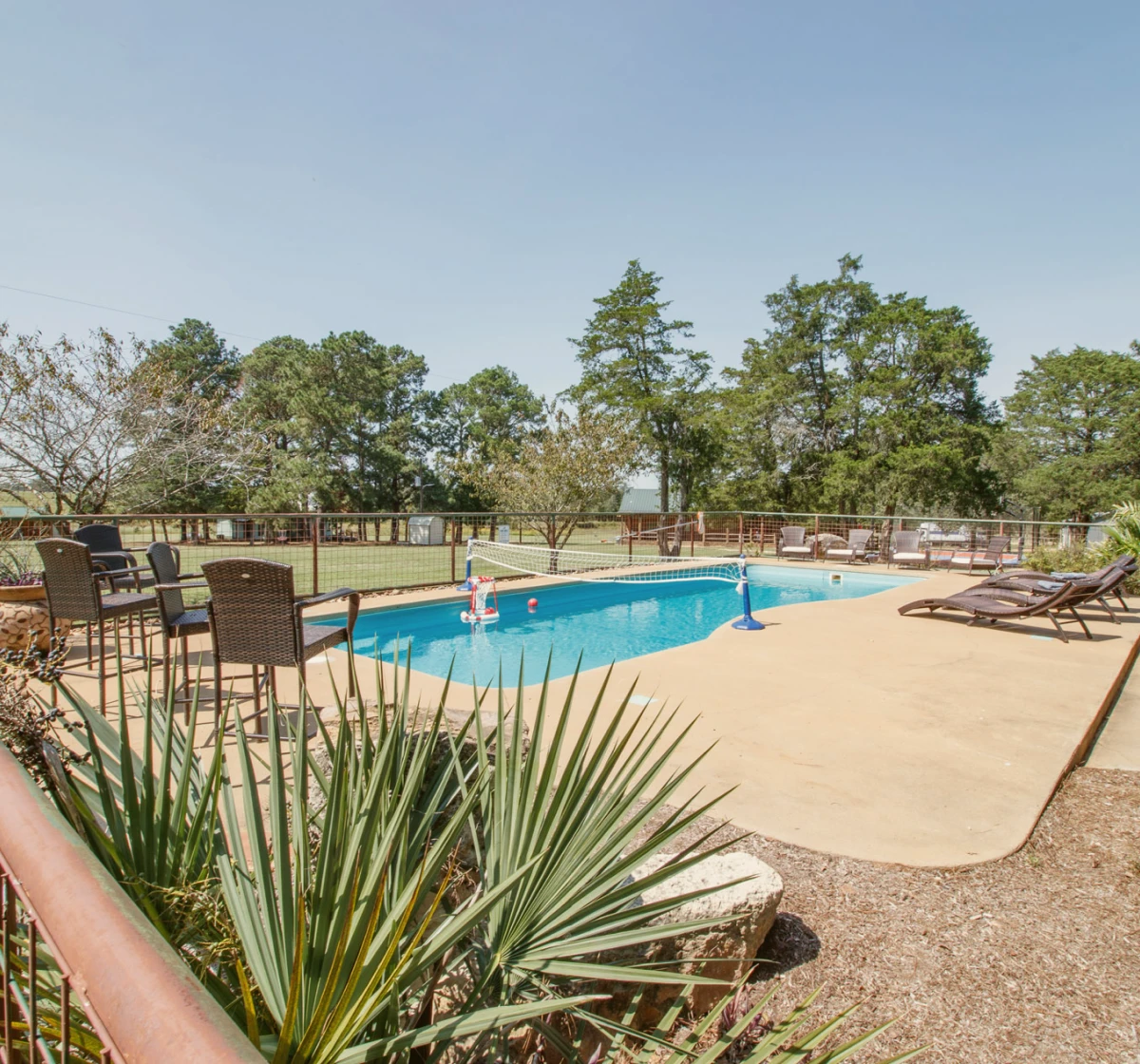
Sober living houses in Austin, Texas, work by providing a transitional environment that bridges the gap between intensive treatment and independent living. Its effectiveness stems from several important factors:[4]
Living with others in recovery creates a built-in support system, reducing isolation and providing mutual encouragement.
Rules and routines help residents develop healthy habits and time management skills essential for maintaining sobriety.
Residents can practice recovery skills in real-world situations while still having a safe, substance-free home to return to.
Encouragement to work or volunteer helps residents rebuild a sense of purpose and community connection.
Regular drug testing and house rules reinforce commitment to sobriety.
Shared responsibilities foster life skills crucial for independent living.
Longer stays allow time for new habits and coping mechanisms to become ingrained.
This combination of structure, support, and real-worldexposure allows individuals to solidify their recovery skills, reducing the risk of relapse as they transition back to independent living.
Sober living programs play a vital role in supporting individuals who are recovering from substance use disorders, particularly those with histories of homelessness, incarceration, and lack of social support for sobriety.[5] These individuals are especially vulnerable to relapse without access to long-term, community-based services that promote and maintain sobriety.
Research has shown that sober living programs can have a positive impact on the lives of their residents. One study found positive longitudinal outcomes for 300 individuals living in two different types of sober living homes, suggesting that these programs might be an effective option for those in need of alcohol-free and drug-free housing.[6] Improvements were noted in various areas, including reduced alcohol and drug use, decreased arrests, fewer psychiatric symptoms, and increased employment rates.
Furthermore, studies have shown that those living in residential recovery homes generally make significant improvements in multiple areas of functioning.[7] Residents who achieve and maintain complete abstinence tend to have particularly good outcomes, highlighting the importance of fostering a supportive environment that encourages and reinforces sobriety.
Overall, these findings underscore the value and efficacy of sober living homes in Austin, Texas, promoting lasting recovery and improving the lives of individuals struggling with addiction.
Click on the links below to learn about the Sober Living care staff at The Last Resort.
We’re excited to share the positive experiences of our other community members, many of whom were where you are today – overwhelmed and uncertain. These are their stories. What will yours be?
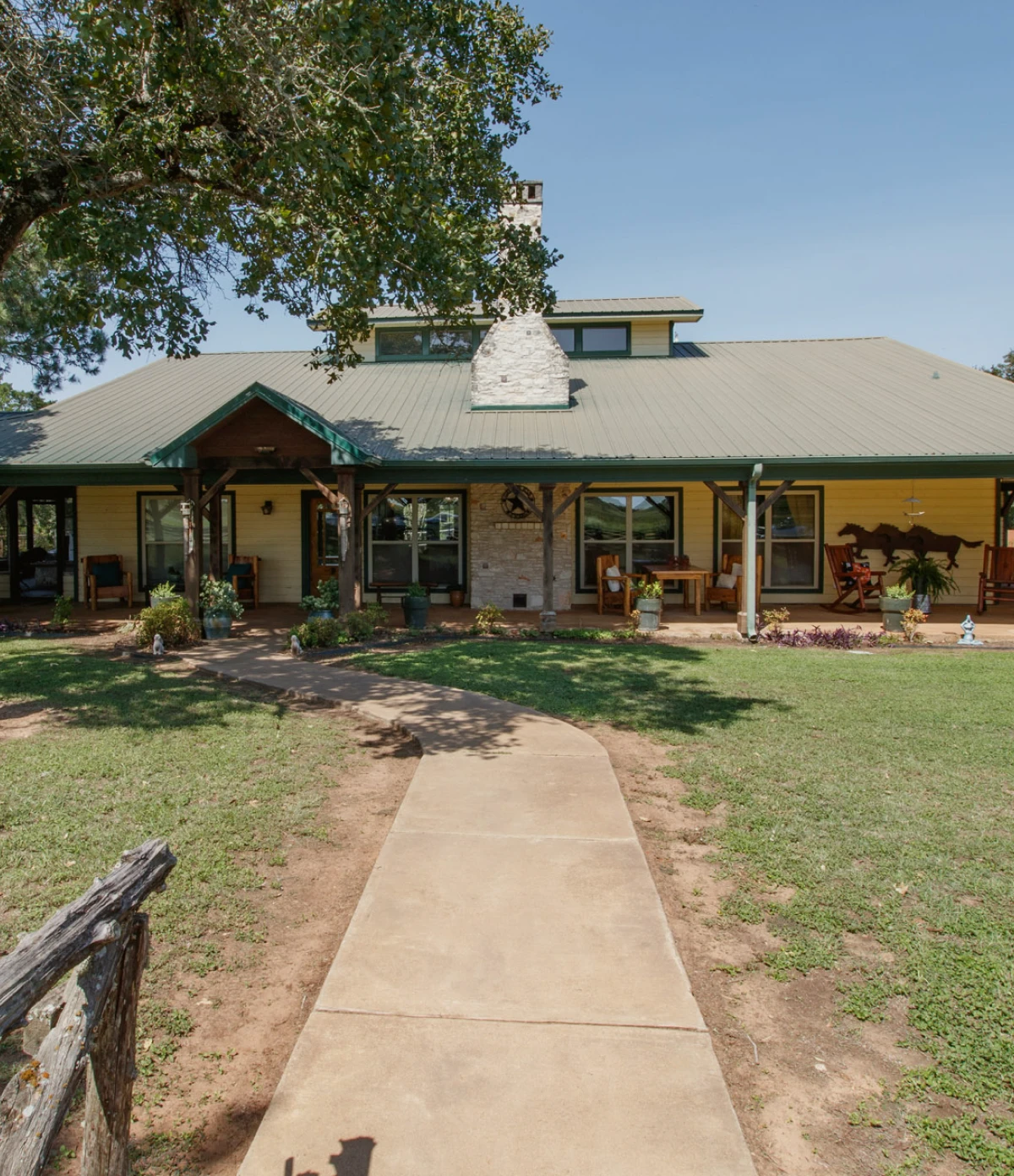
When a client achieves the goals outlined in his treatment plan or demonstrates significant stability in his recovery, we facilitate their transition to a less intensive level of care.
This fluid approach ensures that each man receives the right intensity of support at the right time.
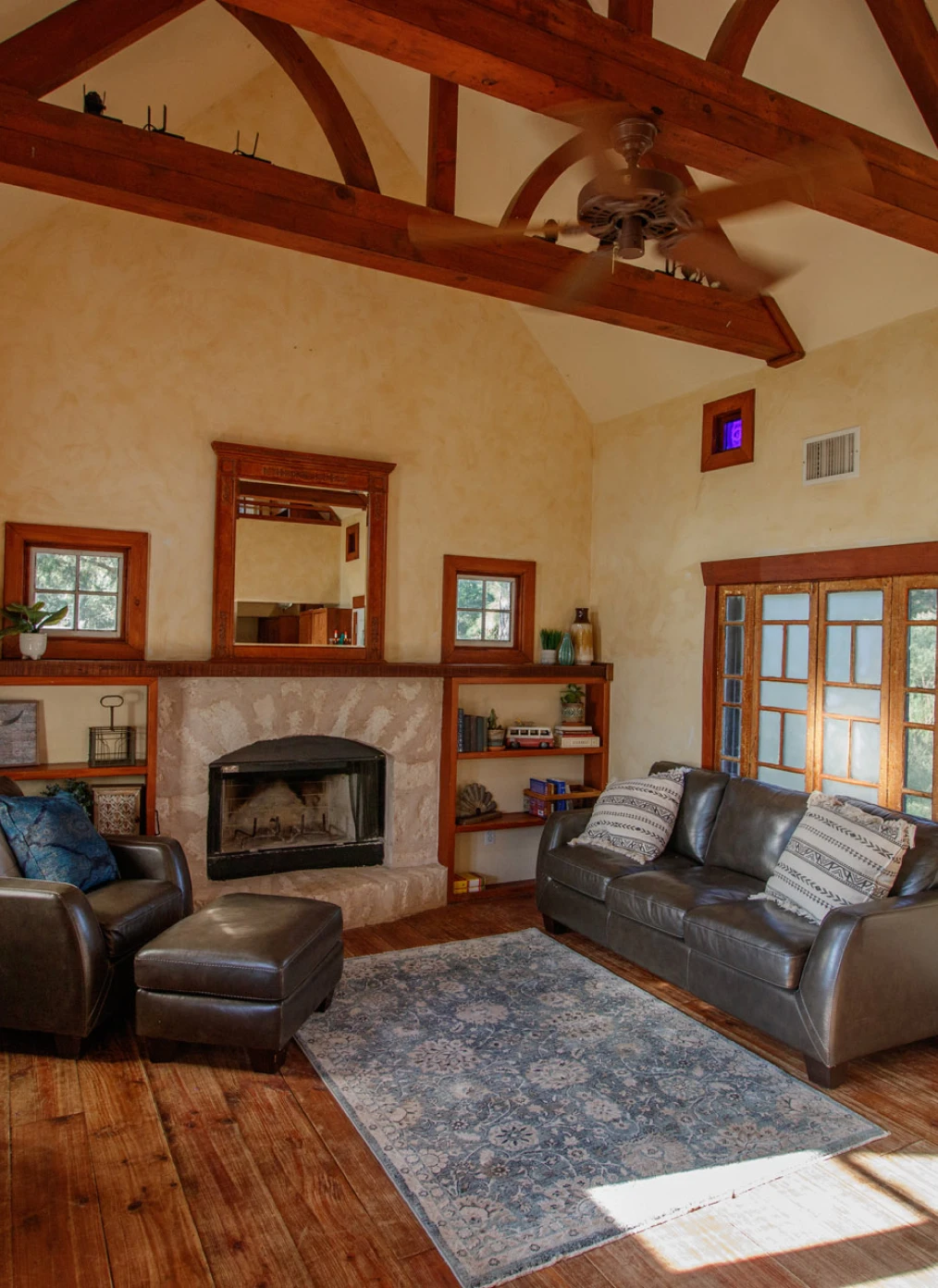
Whether you’re starting at the Partial Hospitalization level of care or graduating from a residential program, there is no wrong way to approach healing. Your recommended level of care can always be adjusted based on your goals and progress. Aside from PHP, The Last Resort treatment ladder includes the following programs
Our 55-acre horse ranch offers peaceful serenity where you will receive 24/7 care, medical management, and daily full-time treatment as you navigate withdrawal and early recovery.
Also housed on our 55-acre ranch, you will receive daily, full-time treatment and build a tight-knit community of other recovering men.
This level of care is hosted at our clinical campus in Austin, Texas, and offers highly desirable flexibility without compromising access to vital treatment.
After formal and structured treatment programs are over, support and treatment can transition to a one-time weekly or “as needed” basis.
Our sober living program offers a clear and structured process for treatment and support with a housing option.
Wherever you fall on the continuum of care, we’re here to support you and your family. Reach out to our admissions team today to get started.
The efficacy of partial hospitalization is similar to inpatient recovery and provides many of the same benefits.[2] One study recorded that those who participated in PHP programs showed lower hospitalization rates (by 220%) and fewer days in the hospital (by 440%).[3]
Not everyone needs inpatient care, nor can everyone cover any costs not covered by insurance. Our partial hospitalization program in Austin bridges the gap between inpatient levels of care and the freedom and flexibility you need to maintain your life and obligations outside treatment—with a more affordable price tag.
Aftercare treatment refers to the ongoing support and services provided to people after they have completed a primary phase of treatment for drug abuse and dual diagnosis issues, such as inpatient care or intensive outpatient (IOP).[1] Aftercare helps you transition back into your daily life while maintaining your progress and is designed to support long-term recovery.
Key components of aftercare for drug rehabilitation can include:[2]
Many aftercare programs include regular therapy sessions to help individuals address underlying issues, learn coping skills, and manage triggers that could lead to relapse. Therapy may be individual, group, or family-based, depending on the needs of the individual.
Participation in support groups such as Alcoholics Anonymous (AA) or similar groups provides ongoing peer support, accountability, and a sense of community. These groups often follow a 12-step or similar structured program that encourages personal growth and sobriety.
Engaging family members in aftercare can improve outcomes by fostering a supportive environment and addressing family dynamics that may contribute to stress or triggers.
Aftercare emphasizes the importance of adopting healthy lifestyle habits that support recovery, such as regular exercise, a nutritious diet, adequate sleep, and stress management techniques.[3]
Programs may offer workshops or classes on topics like relapse prevention strategies, communication skills, anger management, and vocational training to help individuals rebuild their lives.[4]
Aftercare providers often conduct regular check-ins to assess progress, address any emerging issues, and reinforce positive behaviors. This monitoring helps individuals stay accountable and motivated in their recovery journey.
Plans for handling potential crises or setbacks are an integral part of aftercare. Providers equip individuals with strategies to navigate challenging situations without turning to substances or unhealthy behaviors.
Research consistently demonstrates the value and effectiveness of residential treatment for substance use disorders and dual diagnosis issues. Several studies back up the positive impact of inpatient care across multiple domains of substance use and overall life quality.[5]
Residential treatment has been shown to significantly improve outcomes in several key areas:[6]
Patients often achieve longer periods of abstinence and show decreased substance use following residential treatment.
Many individuals experience improvements in co-occurring mental health conditions, such as depression and anxiety.
Residential care helps patients develop better interpersonal skills and rebuild relationships damaged by addiction.
Patients often show improved job performance and increased employment rates after completing residential programs.
Many experience improvements in overall physical well-being due to the structured, health-focused environment of residential care.
Patients frequently report a higher overall quality of life following residential treatment.
These findings underscore the importance of residential treatment as a valuable option in the continuum of care for substance use disorders. The evidence suggests that, for many, the immersive and comprehensive nature of residential treatment provides a strong foundation for long-term recovery.

A residential detox and drug rehab program is a highly structured environment that offers both daily treatment sessions and essential rest and reflection.
Detox is often the first step toward recovery and is an essential component of effective treatment. Medical Detox provides a safe and comfortable environment where you can undergo the withdrawal process with medical supervision. Undergoing the detox process on your own can be not just uncomfortable but dangerous, making it important to find a supportive and healing environment to focus on recovery.
As part of a complete treatment program, when needed, the Last Resort incorporates detox into a treatment program that emphasizes the need to identify and address underlying trauma from past experiences while also treating alcohol or drug addiction. Successfully linking detox with a complete treatment program reduces the likelihood of repeated withdrawals and can ultimately deliver the level of care you need.[1]
We also incorporate trauma-informed Equine-Assisted Therapy in our treatment approach. This method has been documented to increase treatment commitment, reduce depression and anxiety, increase self-reliance, make a positive emotional impact, and increase motivation for continuing treatment.[2]
Our residential treatment center offers 24/7 supervision and support with daily care in a compassionate environment. This is the recipe for thriving success we’ve developed over decades in operation.

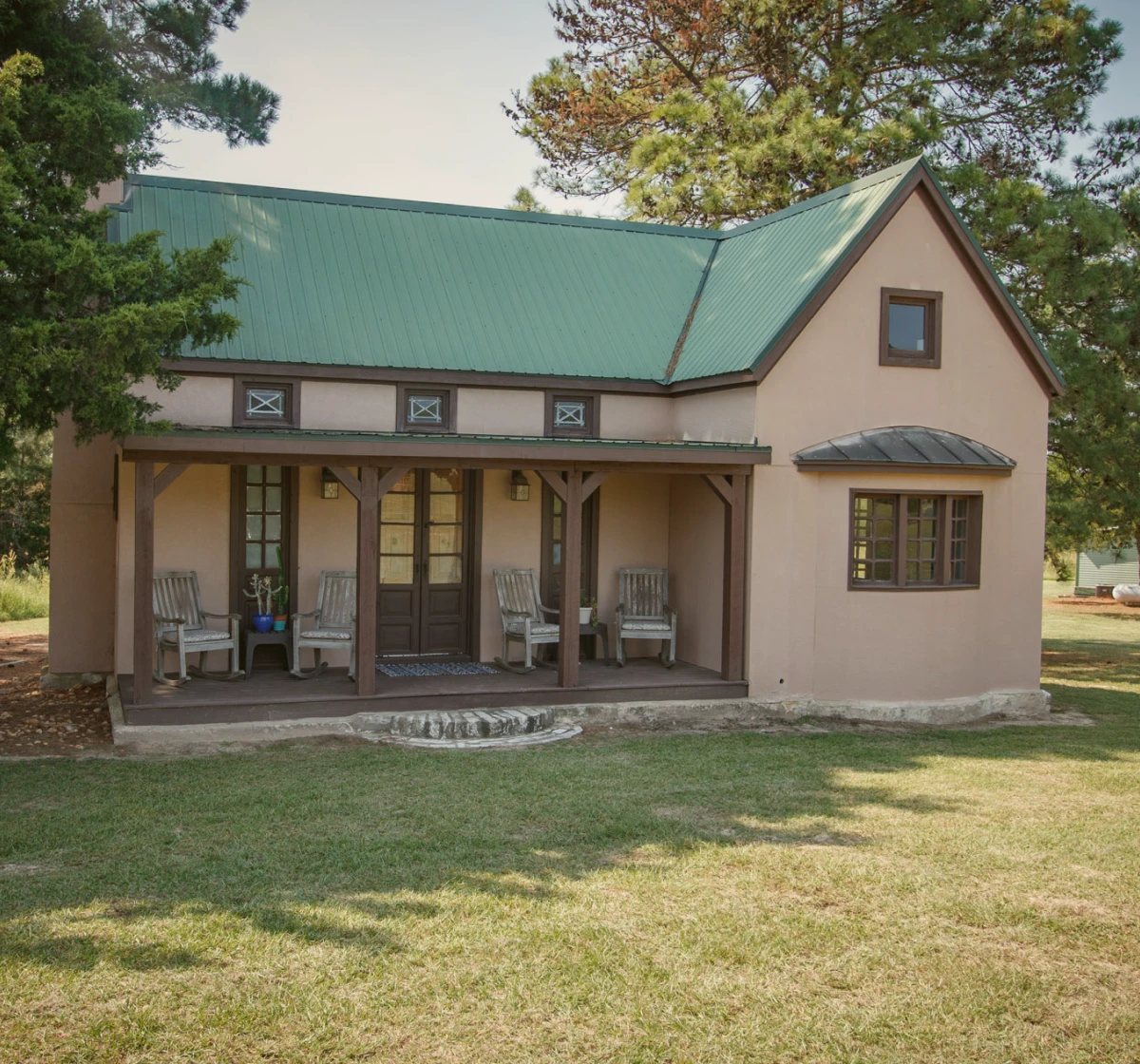
Within an organized and structured program, you will pursue healing with every interaction and encounter. Each client will receive a customized treatment plan tailored to their needs to ensure that each session is as effective and beneficial as possible.
Not all of the therapies we offer are appropriate for the family program, but they may still be included on a case-by-case basis or as part of the client’s individual treatment.
Getting the whole family involved in a positive recovery process is essential for sustained recovery. It empowers each member to confidently do their part in the systemic healing of the whole family unit.
At The Last Resort, we are a family-centered treatment center. Our programs are designed to facilitate your recovery journey and support your family’s needs. We have three primary channels for family addiction recovery:
This is a one-day event on-site at The Last Resort horse ranch outside Austin, Texas. Our rustic but deluxe comfort recovery center will host clients, family members, and close friends for a day of bonding, family counseling, education, therapy sessions, experiential therapy sessions, equine-assisted therapy, and other wellness activities.
This is a 2-day virtual training program to equip your family members with the education and support services they need to support your long-term recovery and advocate for their own needs.
All clients and their family members have the opportunity to participate in group family therapy, individual family counseling, and our free Zoom meeting for families, which is hosted by licensed clinicians and offered weekly both during treatment and after you’ve been discharged from the inpatient treatment center.
The Last Resort offers a variety of evidence-based and holistic care modalities ensuring our clients receive comprehensive support throughout this crucial phase of their recovery journey.
Aftercare provides ongoing support after you’ve completed your primary treatment. This program offers regular check-ins, group therapy sessions, and resources to help maintain sobriety. It focuses on relapse prevention, life skills development, and building a strong support network to ensure long-term recovery success.
Encourages acceptance of thoughts and feelings while committing to behavior changes aligned with personal values. Promotes psychological flexibility and meaningful life engagement.
Provides comprehensive information on substance use disorders and recovery strategies. Empowers you to make informed decisions about your health and recovery journey.
Addresses negative thinking patterns and behaviors associated with addiction. Helps people identify, challenge, and change destructive thought processes and modify harmful behaviors.
Focuses on emotion regulation, distress tolerance, interpersonal effectiveness, and mindfulness skills. Effectively supports those with intense emotions or co-occurring disorders.
Promotes emotional growth and self-awareness through interactions with horses. Participants learn about themselves, fostering trust, communication, and emotional regulation.
Active, hands-on approaches involving art, music, role-playing, or outdoor adventures. Addresses issues through direct experience and reflection.
Collaborative approach to enhance communication, resolve conflicts, and build a supportive recovery environment. Addresses family dynamics related to addiction.
Structured physical exercise programs designed to improve overall health, reduce stress, and support recovery. Regular exercise can boost mood, sleep quality, and provide a healthy stress outlet.
A supportive setting where individuals share experiences, challenges, and successes with peers in recovery. Provides validation, diverse perspectives, and opportunities to practice interpersonal skills.
An intensive workshop focused on emotional healing and personal growth. Involves guided exercises, reflection, and group support to address emotional issues and promote self-discovery.
One-on-one sessions for personal exploration, goal-setting, and addressing specific issues. Offers a safe space for deep, individualized work on recovery and personal growth.
Practical training in essential skills for daily life and sobriety. Topics may include financial management, job readiness, communication, and stress management, aiming to support independent, substance-free living.
A client-centered counseling style to resolve ambivalence and enhance motivation for change. Explores and strengthens personal motivations for recovery, promoting lasting behavior change.
Therapeutic role-playing and storytelling to gain insight, explore emotions, and practice new behaviors in a safe environment.
A goal-directed approach emphasizing strengths and solutions. Aims for rapid change by helping individuals envision a preferred future and take concrete steps toward it.
Combines yoga practices and concepts to promote physical, mental, and emotional well-being. Reduces stress, increases body awareness, and supports overall recovery through physical postures, breathing exercises, and meditation.
No two recovery journeys are alike, and there’s no single method to address every instance of substance use disorders, mental health issues, or co-occurring diagnoses. That’s why our focus is on delivering individualized care tailored to each client’s unique needs and circumstances.
When clients arrive on our 55-acre campus, they undergo an in-depth assessment that determines their ideal level of care. Our treatment team thoroughly evaluates the results to design a personalized treatment plan.
As clients advance in their recovery, we regularly review their needs and modify the level of care accordingly. When a client reaches the goals outlined in his treatment plan or shows notable stability in his recovery, we help them transition to a less intensive level of care. This adaptable approach ensures that each man receives the appropriate support at each stage, whether they require the structure of residential treatment or are prepared for a step-down program.
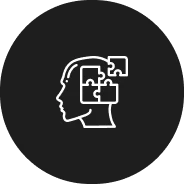
A multidimensional biopsychosocial assessment aligned with ASAM Criteria[8]
The client's personal goals and perceived needs
Input from our multidisciplinary treatment team
Continuous evaluation of progress and
response to treatment
Many sober living homes in Austin support residents in pursuing employment or educational opportunities. They often encourage residents to engage in productive activities that promote personal growth and stability. Some sober living environments may have specific guidelines regarding work or school schedules to ensure residents maintain a balanced lifestyle conducive to recovery.
Our holistic recovery programs for men offer a variety of treatments, including:
Yes, detoxification is an integral part of our addiction treatment programs. We provide medically supervised detox services to ensure a safe and comfortable withdrawal process for individuals who require it before entering the main treatment phase.
[1] Best Practices for Recovery Housing. (2023). https://store.samhsa.gov/sites/default/files/pep23-10-00-002.pdf on July 3, 2024
[2] Polcin, D. L., Henderson, D., Trocki, K., Evans, K., & Wittman, F. (2012). Community context of sober living houses. Addiction Research & Theory, 20(6), 480–491. https://www.ncbi.nlm.nih.gov/pmc/articles/PMC3902663/ on July 3, 2024
[3] Information, N. C. for B., Pike, U. S. N. L. of M. 8600 R., MD, B., & Usa, 20894. (2020). Chapter 5—Strategies for Working With People Who Have Co-Occurring Disorders. In www.ncbi.nlm.nih.gov. Substance Abuse and Mental Health Services Administration (US). https://www.ncbi.nlm.nih.gov/books/NBK571013/ on July 3, 2024
[4] Wittman, F. D., & Polcin, D. L. (2014). The Evolution of Peer Run Sober Housing as a Recovery Resource for California Communities. International Journal of Self Help and Self Care, 8(2), 157–187. https://www.ncbi.nlm.nih.gov/pmc/articles/PMC4248351/ on July 3, 2024
[5] Polcin, D. L., Korcha, R., Bond, J., & Galloway, G. (2010). What Did We Learn from Our Study on Sober Living Houses and Where Do We Go from Here? Journal of Psychoactive Drugs, 42(4), 425. https://www.ncbi.nlm.nih.gov/pmc/articles/PMC3057870/ on July 3, 2024
[6] Polcin, D. L., & Henderson, D. M. (2008). A Clean and Sober Place to Live: Philosophy, Structure, and Purported Therapeutic Factors in Sober Living Houses. Journal of Psychoactive Drugs, 40(2), 153–159. https://www.ncbi.nlm.nih.gov/pmc/articles/PMC2556949/ on July 3, 2024
[7] Polcin, D. L., Mahoney, E., Witbrodt, J., Subbaraman, M. S., & Mericle, A. A. (2023). Outcomes Among Sober Living House Residents Who Relapse: Role of Recovery Capital. Journal of Psychoactive Drugs, 1–9. https://www.tandfonline.com/doi/full/10.1080/02791072.2023.2225502 on July 3, 2024
[8] American Society of Addiction Medicine. (2022). About the ASAM Criteria. American Society of Addiction Medicine. https://www.asam.org/asam-criteria/about-the-asam-criteria on July 3, 2024
Our admission specialists are ready to talk with you 24/7 about starting the journey. We always treat each caller with the utmost respect, detailing your treatment options and respecting your confidentiality.
Based on your assessment, we’ll work together to create a customized treatment plan that addresses your needs, ensuring you have the support and resources necessary to achieve your goals.
The Last Resort is in-network with most major insurance companies. Fill out the form below to verify your healthcare coverage within the hour.
We’ll welcome you to our campus and start laying the groundwork for a successful, long-term recovery.